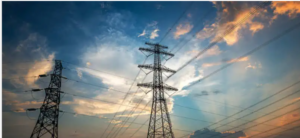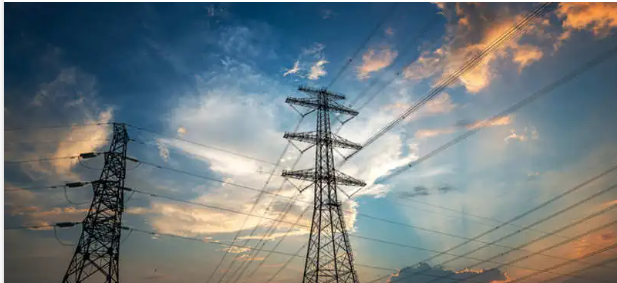In the Goa-Tamnar intricate dance between development aspirations and environmental conservation, few landscapes hold as much significance as the Western Ghats.  for more information click on this link
for more information click on this link
The Goa-Tamnar powerline project, proposed by Adani Electricity, seeks to establish a high-voltage transmission line spanning approximately 400 kilometers to connect Goa’s power grid with the upcoming Tamnar ultra mega power project in Chhattisgarh. The project aims to enhance electricity transmission capacity, support regional energy demands, and bolster economic growth by facilitating the transfer of surplus power from Chhattisgarh to Goa and other southern states.
However, the proposed route of the powerline traverses through ecologically sensitive areas within the Western Ghats, including dense forests, wildlife habitats, and biodiversity hotspots. This has raised concerns among environmentalists, conservationists, and local communities regarding potential ecological impacts, including habitat fragmentation, deforestation, loss of biodiversity, and disruption of ecosystem services.
In a significant development, the Karnataka government announced the suspension of the Goa-Tamnar powerline project, citing environmental concerns and the need to protect the fragile ecosystems of the Western Ghats. The decision reflects a growing recognition of the intrinsic value of biodiversity conservation and the imperative of sustainable development practices.
- The Western Ghats, recognized as a global biodiversity hotspot and a UNESCO World Heritage Site, is home to a rich array of flora and fauna, many of which are endemic and endangered. Any infrastructure development within this ecologically sensitive region must be carefully evaluated to minimize adverse impacts on biodiversity and ecological integrity.
- The proposed powerline project has faced staunch opposition from environmental activists, civil society organizations, and local communities who are deeply invested in preserving the pristine landscapes and cultural heritage of the Western Ghats. Their advocacy efforts have heightened awareness about the ecological significance of the region and exerted pressure on authorities to reconsider the project’s viability.
- The decision to halt the Goa-Tamnar project may also be influenced by legal considerations, including compliance with environmental regulations, adherence to forest conservation laws, and the need to obtain requisite clearances from regulatory authorities. Any deviation from statutory requirements could expose the project to legal challenges and regulatory hurdles, leading to delays and uncertainties. In light of the suspension of the powerline project, stakeholders are exploring alternative strategies to meet Goa’s energy needs and enhance power transmission infrastructure without compromising environmental sustainability. This may involve investing in renewable energy sources, upgrading existing transmission networks, and adopting innovative technologies to optimize energy efficiency.
The decision to halt the Goa-Tamnar powerline project has far-reaching implications for stakeholders across various sectors and underscores the complexities of balancing development imperatives with environmental conservation goals:The suspension of the powerline project may have short-term economic repercussions, including delays in infrastructure development, potential loss of investment, and uncertainties surrounding energy supply and demand dynamics. However, these challenges must be weighed against the long-term benefits of preserving the ecological integrity of the Western Ghats and safeguarding ecosystem services vital for sustainable development.Karnataka’s decision raises broader policy dilemmas concerning infrastructure planning, environmental governance, and sustainable development strategies. It underscores the need for integrated approaches that reconcile competing interests, prioritize environmental sustainability, and promote participatory decision-making processes that engage stakeholders at all levels The suspension of the powerline project also highlights the importance of interstate coordination and cooperation in addressing transboundary environmental issues. Given that the Western Ghats span multiple states Goa-Tamnar, collaborative efforts are essential to develop holistic conservation strategies, share best practices, and mitigate the cumulative impacts of development activities on the region’s ecosystems. Meaningful engagement with local communities, indigenous groups, and other stakeholders is crucial for fostering inclusive and sustainable development practices. Empowering communities to participate in decision-making processes, respect traditional knowledge systems, and benefit from conservation initiatives enhances social cohesion and strengthens the resilience of ecosystems.
Karnataka’s decision to halt the Goa-Tamnar powerline project to safeguard the Western Ghats underscores the intricate interplay between development aspirations and environmental conservation imperatives. It reflects a growing recognition of the ecological significance of the region and the need to adopt sustainable development practices that reconcile economic growth with ecosystem protection. As India navigates the complexities of infrastructure development and environmental stewardship, it must embrace integrated approaches that prioritize biodiversity conservation, uphold ecological integrity, and promote the well-being of present and future generations. Only through concerted efforts and collaborative action can we strike a harmonious balance between progress and preservation in our pursuit of a sustainable future.






1win зайти 1win зайти .
1win.kg https://familyclub.borda.ru/?1-6-0-00002163-000-0-0-1743051813/ .
скачат мостбет https://mostbet6006.ru/ .
1win rossvya 1win6001.ru .
мосбет казино http://mostbet6006.ru/ .
1вин бет официальный сайт https://familyclub.borda.ru/?1-6-0-00002163-000-0-0-1743051813/ .
адин вин https://www.familyclub.borda.ru/?1-6-0-00002163-000-0-0-1743051813 .
1win pro http://1win6001.ru .
игра 1вин http://1win6001.ru .
1 вин скачать 1win6002.ru .
ваучер 1win http://1win6049.ru/ .
1win. com http://1win6049.ru/ .
1win на телефон http://balashiha.myqip.ru/?1-12-0-00000437-000-0-0-1743258848 .
1win на телефон https://www.alfatraders.borda.ru/?1-0-0-00004932-000-0-0-1743258210 .
1вин сайт официальный http://balashiha.myqip.ru/?1-12-0-00000437-000-0-0-1743258848 .
что такое 1win что такое 1win .
1 win https://www.1win6049.ru .
один вин официальный сайт один вин официальный сайт .
ваучер 1win https://alfatraders.borda.ru/?1-0-0-00004932-000-0-0-1743258210 .
1вин. obovsem.myqip.ru/?1-9-0-00000059-000-0-0-1743051936 .
1wi. 1wi. .
скачать мостбет http://svstrazh.forum24.ru/?1-18-0-00000136-000-0-0-1743260517/ .
1вин официальный http://1win6050.ru/ .
motsbet https://svstrazh.forum24.ru/?1-18-0-00000136-000-0-0-1743260517 .
1вин войти http://www.obovsem.myqip.ru/?1-9-0-00000059-000-0-0-1743051936 .
1win официальный сайт войти http://obovsem.myqip.ru/?1-9-0-00000059-000-0-0-1743051936 .
1 вин войти 1 вин войти .
официальный сайт 1win https://1win6050.ru .
1 win официальный сайт вход http://www.1win6051.ru .
1win онлайн 1win онлайн .
Добрый день!
Мы изготавливаем дипломы любых профессий по невысоким тарифам. Стоимость может зависеть от выбранной специальности, года выпуска и образовательного учреждения: diplomanc.com/
1вин кг https://1win6052.ru/ .
1 win.kg http://1win6052.ru .
1win 1win .
мостбет официальный сайт мостбет официальный сайт .
мостбет скачать бесплатно https://mostbet6029.ru/ .
1win сайт https://1win6053.ru/ .
один вин официальный сайт http://1win6053.ru/ .
1 вин. http://1win6053.ru/ .
1win pariuri 1win5011.ru .
1 win moldova 1 win moldova .
descărca 1win http://1win5011.ru .
mostbest http://mostbet6012.ru .
мостбет кыргызстан скачать http://www.mostbet6012.ru .
1вин вход 1вин вход .
1 win.pro 1win6009.ru .
мостбет официальный сайт мостбет официальный сайт .
mostbet промокод mostbet промокод .
win 1 https://www.1win6009.ru .
Диплом университета России!
Без наличия диплома достаточно сложно было продвигаться по карьере. Купить диплом возможно через официальный сайт компании: censornet.ru/kupit-diplom-kak-eto-povliyaet-na-kareru
рулонные. шторы. +на. пластиковые. окна. купить. https://rulonnye-shtory-s-elektroprivodom10.ru/ .
инвестиции в криптовалюту инвестиции в криптовалюту .
пластиковые окна купить в новосибирске http://www.oknasibirinsk.ru/ .
https://mirka-master.ru/kupit-plastikovye-okna-v-sankt-peterburge-nadyozhnoe-reshenie-ot-kompanii-afina-okna/
Thanks for the article https://l-spb.ru/
банкротство физлиц bankrotstvo-fiz-lic-moscow.ru .
банкротство граждан bankrotstvo-grajdan.ru .
?? У кого в дипломе хоть раз была правда?
Серьезно: вы когда-нибудь открывали свой диплом и думали — “да, всё, что здесь написано, я действительно знаю и умею”?
У многих — только сертификат. Корочка, глянцевая, с гербом и подписями, которую HR смотрит за 1,5 секунды. А потом начинается: опыт, кейсы, компетенции, “что умеешь по факту?”. Диплом где-то там, в мнимом мире.
Но реалия в том, что без диплома тебе даже не дадут шанс доказать, что ты умеешь.
Ты можешь быть крутым специалистом, уметь в IT, дизайн, управление, логистику — но без документа с золотым тиснением не попадешь на собеседование.
?? Нормально ли это? Нет. Реальность ли это? Да.
Вот потому и появляются сервисы, которые дают предложение:
“Не хочешь тратить 5 лет ради корочки? Мы поможем. Тебе нужен не вуз — тебе нужен диплом.”
Ты его получаешь, кладёшь в резюме, и дальше всё зависит от твоих мозгов, а не от шрифта на бумаге.
Кто-то скажет: “Это обман!”
А кто-то — “Это адаптация к системе, которая обманывает тебя с детства”.
?? И что в итоге?
Диплом становится не подтверждением знаний, а входным билетом. Как QR-код в метро — проверили, что есть, и пропустили.
Поэтому люди и принимают такие решения.
Не потому что глупые. А потому что взрослые, занятые, уставшие от лишнего.
Потому что хотят не учиться “ради процесса”, а работать по делу.
?? Ирония в том, что большинство таких дипломов — работают.
Даже если ты их не учил — ты знаешь, как применить. А вот “настоящие выпускники” потом всё равно идут на курсы и стажировки, потому что ничего не помнят.
И что важнее: корочка или то, как ты справляешься с задачей?
?? У кого были такие мысли — пишите. У кого был опыт — делитесь.
Как заказать диплом с реальными данными и приложением? Мы поможем
Покупка дипломов ВУЗов в Москве — с печатями, подписями, приложением и возможностью архивной записи (по запросу).
Документ максимально приближен к оригиналу и проходит визуальную проверку.
Мы даем гарантию, что в случае проверки документа, подозрений не возникнет.
– Конфиденциально
– Доставка 3–7 дней
– Любая специальность
Уже более 3329 клиентов воспользовались услугой — теперь ваша очередь.
Звоните — ответим быстро, без лишних формальностей.
Thanks for the article. Here’s more on the topic https://great-galaxy.ru/
проверика контрагента proverit-kontragenta.ru .
проверика организации proverit-kontragenta.ru .
Here’s more on the topic https://kinocirk.ru/
Оформиление дипломов ВУЗов по всей Украине — с печатями, подписями, приложением и возможностью архивной записи (по запросу).
Документ максимально приближен к оригиналу и проходит визуальную проверку.
Мы гарантируем, что в случае проверки документа, подозрений не возникнет.
– Конфиденциально
– Доставка 3–7 дней
– Любая специальность
Уже более 1606 клиентов воспользовались услугой — теперь ваша очередь.
Диплом о среднем образовании — ответим быстро, без лишних формальностей.
Thanks for the article. Here’s more on the topic https://imgtube.ru/
Thanks for the article. Here’s more on the topic https://taya-auto.ru/
Хочу порекомендовать пофессионального хакера. Справился отлично! Заказывал – Заказать взлом viber Почта специалиста: Unitstels@yandex.com
купить государственный диплом с занесением в реестр купить государственный диплом с занесением в реестр .
vezdnaya-gruppa-na-uchastok-495.ru .
Рекомендую промокод в 1хбет на сегодня
Thanks for the article https://bc39.unoforum.pro/?1-0-0-00004667-000-0-0-1721660606 .
Thanks for the article https://telegra.ph/Luchshij-silikon-dlya-shchuki-TOP-10-ulovistyh-primanok-01-13 .
лучшие песни уннв лучшие песни уннв .
Thanks for the article https://prime.itxoft.com/understanding-keyword-difficulty-itxoft-15538/ .
Website https://imgtube.ru/
Website – http://devichnik.su/forum/71-27174-1 .
Website – https://lostfiilmtv.ru/
Веб сайт https://urkarl.ru/
Website – https://lostfiilmtv.ru/
https://vc.ru/money/1656723-kakie-obsledovaniya-prohodyat-pered-kontraktom-na-svo-medkomissiya-i-analizy
промокоды на сегодня
Si te preocupan las infecciones urinarias recurrentes, en la Clínica de Urología Moderna encontrarás explicaciones claras y soluciones.
Si tienes dudas sobre cirugías urológicas, los contenidos de la Clínica de Urología Moderna te ayudarán a entenderlas.